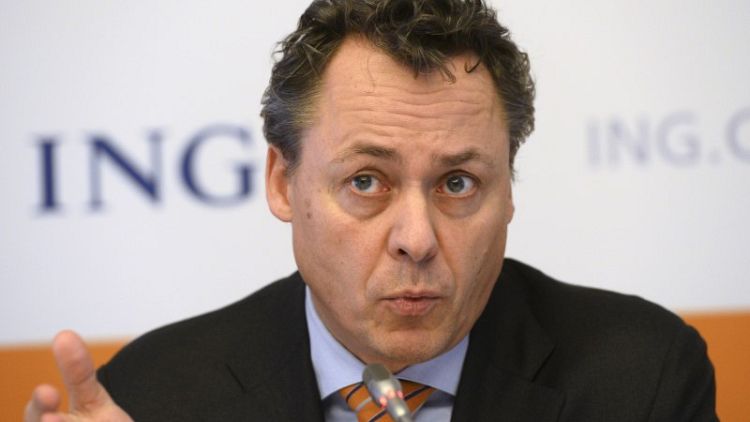By Toby Sterling
AMSTERDAM (Reuters) - ING Groep <INGA.AS>, the largest Dutch bank, on Thursday reported a profit of 776 million euros (£683 million), better than expected as it continued to grow on an underlying basis despite being fined for failures to prevent money laundering.
Analysts polled by Reuters had forecast net profit at 630 million euros, compared with 1.38 billion euros in the same period a year ago.
Prosecutors fined ING 775 million euros in September for inadequate supervision of suspicious client transactions.
"The settlement did have an impact on our reputation and quarterly results," said CEO Ralph Hamers in a statement. Hamers kept his job, while CFO Koos Timmermans resigned.
Despite public anger over the bank's wrongdoing, ING said it gained 200,000 new "primary" customers in the quarter, defined as customers that use ING for more than one produce, bringing the total to 12.2 million.
The bank's third-quarter underlying result before tax, which does not include the penalty, was 2.12 billion euros, up 6.5 percent from 2.00 billion euros in the third quarter of 2017.
ING said it grew its loan book by 6.8 billion euros with "resilient margins".
Net interest margin increased fractionally to 1.52 percent from 1.51 percent in the second quarter of 2018, which ING said was due to slightly better margins on mortgage and savings accounts.
Fee and commission income grew by 12 percent to 720 million euros.
Provisions against bad loans rose to 215 million euros from 124 million euros a year earlier, which ING noted was still lower than normal in both quarters, as economic growth in its main markets remain strong.
(Reporting by Toby Sterling; editing by Darren Schuettler and Gopakumar Warrier)



